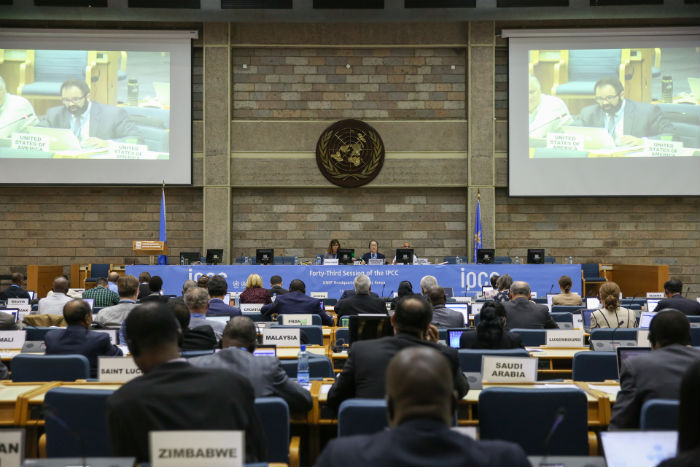Send to a friend
The details you provide on this page will not be used to send unsolicited email, and will not be sold to a 3rd party. See privacy policy.
The UN’s climate science body will produce a special research report on the impacts of global warming of 1.5 degrees Celsius — an aspirational temperature target agreed by 195 countries last December.
The promise came about because the Intergovernmental Panel on Climate Change (IPCC) has never focused on this target in any of its periodic assessments of the latest climate science.
After a meeting in Nairobi, Kenya, last week (11-13 April), the IPCC agreed to a request made at the December 2015 Paris Conference of the Parties to provide such a report. The panel will review scientific evidence and literature around the aspirational limit on temperature rise, and deliver a comprehensive analysis of existing science and potential emission reduction pathways in 2018.
“The report on 1.5 degrees of warming would be framed in the context of the Paris agreement, especially in the light of sustainable development and poverty eradication.”
Ramón Pichs-Madruga, IPCC
In 2010, the UN agreed to cap global warming at two degrees. But the additional aspirational goal of limiting global warming to 1.5 degrees above pre-industrial levels has now been agreed as the only safe level of warming for some of the world’s most vulnerable communities — in particular small island nations.
Ramón Pichs-Madruga, a vice-chair involved in the panel’s Sixth Assessment Report scheduled to be published in 2022, told SciDev.Net that the report on 1.5 degrees of warming “would be framed in the context of the Paris agreement, especially in the light of sustainable development and poverty eradication”.
Panel members said the report will include information to improve decision-making in political negotiations on climate change.
The decision to produce the report should “invite and stimulate scientists worldwide to develop solutions to stop warming at 1.5 degrees”, says Manfred Treber, senior advisor for climate and transport at sustainable development NGO Germanwatch.
Since the Fifth Assessment Report in 2014, there has been new science on 1.5 degree scenarios, says Treber, who attended the Nairobi meeting.
The proposed report comes in the wake of another report on the target, prepared by a scientific body within the UN Framework Convention on Climate Change, which India and Saudi Arabia rejected during the Paris negotiations last December.Along with the new 1.5 degree Celsius report, the IPCC agreed to prepare two other special reports on climate change’s impacts: one largely dealing with oceans and the other mainly focusing on food security.
Furthermore, the panel signed an agreement with the UN Environment Programme “to develop a library facility for IPCC authors, giving them access to relevant journals and publications at no cost to them”, said IPCC chairman Hoesung Lee.
“This will be particularly useful for authors from developing countries,” he told a press conference.














